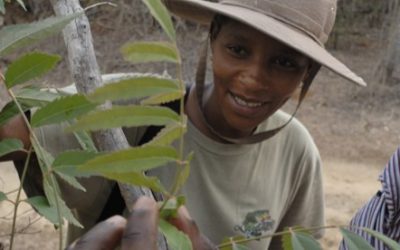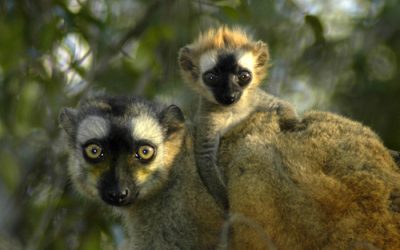Kenya’s President, Uhuru Kenyatta, set light to a vast stockpile of ivory to mark the end of a summit of African leaders against poaching and illegal trade in ivory. Around 120 tonnes of ivory were torched, the largest stockpile ever destroyed by any country, in a show of commitment to conserving and protecting the elephant.
The event took place on 29 and 30 April at the Kenya Wildlife Service (KWS) headquarters in Nairobi. It is estimated that more than 30,000 elephants are killed for their tusks every year. Ivory is sought out for jewellery and decorative objects and much of it is smuggled to China.
This destruction of the seized ivory has been championed by veteran conservationist Richard Leakey, the chairman of KWS and was facilitated by KWS officers, most of whom are TBA alumni.
Dr Erastus Kanga, KWS Senior Assistant Director for Biodiversity Research and Monitoring (pictured inspecting the pyres before they were lit), said:
It is vitally important to protect our animals and the environment for our own benefit and that of future generations. I am glad that TBA is equipping young conservationists with the skills and knowledge to spearhead conservation in their countries. As a TBA alumnus, I am proud to be part of this historical event and to play a role in conservation in Kenya.



